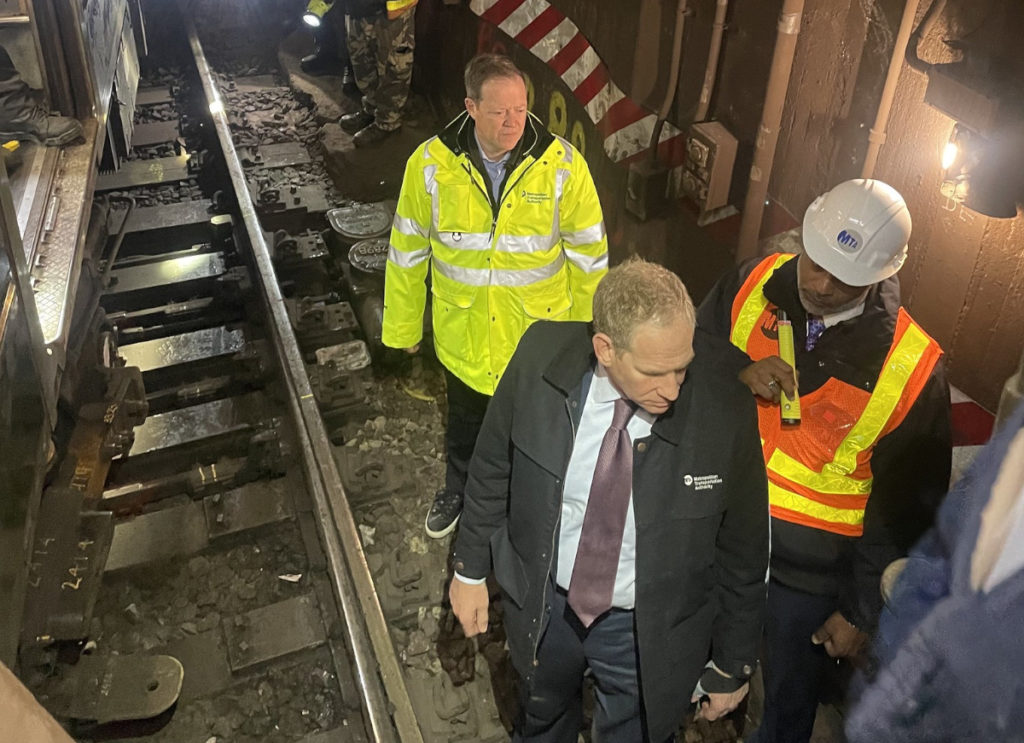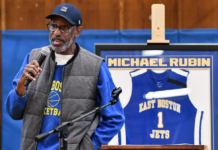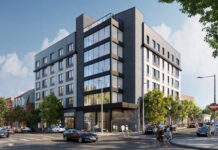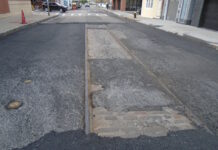AIR, Inc. calls selection of Rich Davey, “a promising one.”
by Chris Marchi, Vice President of AIR, Inc
SPECIAL TO EASTBOSTON.COM
East Boston airport activists haven’t been able to support many Massport decisions over the years. However, Airport Impact Relief, Incorporated (AIR, Inc.), a community group which has opposed the environmental and health impacts of Logan expansion since the 1960’s, thinks the selection of Rich Davey as the next CEO of Massport is a promising one. AIR, Inc. representatives say that Mr. Davey’s selection makes sense in light of his experience running transit systems and his familiarity with Massachusetts’ transportation politics.
Logan Airport’s ground access crisis is a perfect example of an opportunity for Davey’s expertise. With peak traffic already choking Logan and annual passenger volumes expected to rise, convincing travelers to get out of their cars and into high occupancy vehicle (HOV) services is a major challenge. At NYC transit, the commuter rail, and the MBTA, Davey proved that he understands that the key is to offer motorists better transit options, whether through capital investments or by improving user experience and convenience. Davey also has a reputation for listening to stakeholders and system users, as he did when Boston area youth from non-profits such as Alternatives for Community & Environment (ACE) and GreenRoots advocated for a YouthPass on the MBTA in 2015.
It is encouraging that under Governor Healey’s watch, Massport has opted NOT to offer the job to another political or airport insider. Politics too often leads to avoiding change, and airport insiders take their cues from airlines that are focused only on their next quarterly report. This has led Massport to keep airline costs down by incrementally adding terminal facilities while delaying programs to address Logan’s passenger service, traffic, and environmental needs.
Now we’re in a bind. Air travel is fully recovered and set to rise, yet Logan is congested and rated at the bottom of national traveler satisfaction surveys, and Massport has no ‘plan B’. The current plan is to push millions more passengers through Logan by building more terminals without addressing the basic ground access congestion problem that is choking both the airport and the community.
Consider the recent news that Philadelphia‘s International Airport (PHL) has established ‘secure to secure’ service with direct bus connections between itself and smaller regional airports. This means that travelers can book, check-in, check baggage, and clear security for trips out of PHL at smaller regional airports, then hop on a luxury coach and be delivered to PHL on the other side of the security line, and their bags will check right through to their final destination.
This sort of innovation should be a starting point for Massport to enhance passenger service.
If PHL can do this, why can’t Logan develop a system of full service remote terminals at Logan Express locations? This would offer travelers a way to skip the stress of dragging luggage along as they fight their way through traffic to get to Logan. Such remote terminal facilities could not only improve connections to Logan, but they could also leverage connections to other regional destinations, including major cities and even other airports. These remote terminal facilities could serve as bus transit hubs through co-locating with the bus services provided by half a dozen regional transit authorities.
Even though industry practice severely limits airport managers’ ability to innovate, for Mr. Davey, pushing the Port Authority’s staff and consultants to innovate will be job one. To do this, he will need to ignore decades of recent practice at the Port Authority, and insist that Massport exercise its right and responsibility to build facilities that meet the needs of the Commonwealth’s air travelers as well as those of impacted communities, and to recover those expenses from airlines and other airport users.
The problem for Rich Davey, and Governor Healey, is that this sort of thinking is not presently being advanced by the staff or board at Massport. And it will not be promoted by aviation industry insider thinking or that of political strategists. The changes we need must come from planners and leaders with the ambition and expertise to make healthy transportation a priority and a reality for our region.
While local airport activists hope that Mr. Davey can lead the Port Authority’s staff to achieve these sorts of innovations, we need Mr. Davey to drive forward equally ambitious plans to implement healthy strategies to reduce net environmental impacts in nearby environmental justice communities. Luckily, his history shows openness to change, innovation, and the type of outside the box thinking which is essential for delivering both forward-looking airport facilities and effective environmental strategies.
We wish Mr. Davey well, and hope he will meet with AIR, Inc. and the Logan Community Clean Air Coalition expeditiously to discuss the community’s many constructive and feasible suggestions, including much-needed improvements in ground access, an airport sponsored community air filtration program, and mitigation planning which is linked to actual growth, all of which have been proposed by impacted communities but ignored for years.
Editor’s note: This article has been revised to version 6/11/2024.
















